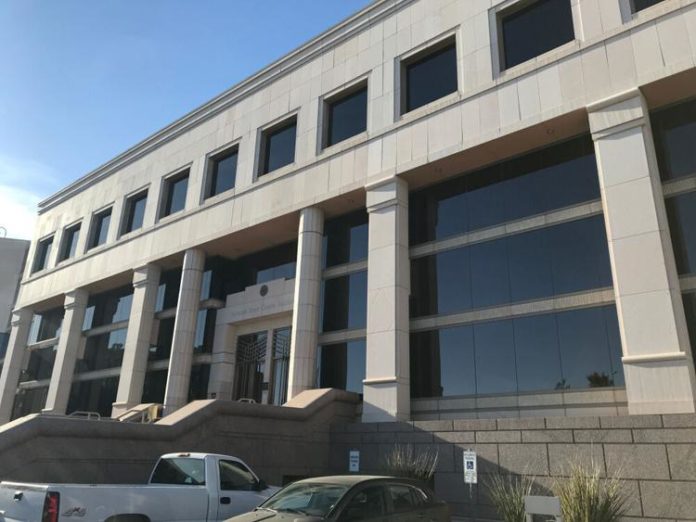The Arizona Supreme Court on Tuesday revived a lawsuit filed by Attorney General Mark Brnovich against the board that oversees the state’s three public universities over a hotel development agreement, giving him the right to try to prove the deal doesn’t benefit taxpayers.
The ruling revived two of four allegations the attorney general made in the lawsuit he filed in January 2019 against the Arizona Board of Regents. All four had been dismissed by a lower court in a ruling upheld by an appeals court.
Brnovich alleged the deal the Regents approved between Arizona State University and Omni Hotels to build a hotel and conference center on land the university owns in Tempe does not benefit taxpayers and is an illegal gift of public monies to Omni. He also alleged the Regents exceeded their legal authority when they agreed to the deal.
The high court did not rule on the merits of those allegations, and they now go back to a trial court for resolution. The Republican attorney general, who is running for U.S. Senate, wants ASU’s deal with the hotel developer voided.
ASU will receive lease payments from the hotel over 60 years. It plans to pay nearly $20 million of the conference center’s construction costs. They also will build an adjacent parking garage funded with $42 million in newly issued bonds it will pay off using parking fees and some of the hotel’s $1.1 million in annual lease payments. The hotel will have access to about 20% of the parking spaces.
The hotel and conference center will be owned by the university and leased by Omni Tempe Hotel, but at the end of the agreement, Omni will be able to purchase it for a nominal price. Because it is on university land and owned by the university, Omni will not pay property taxes.
Brnovich also challenged that part of the deal, alleging that a provision in the state constitution that exempts state-owned land from taxation could not apply to a commercial enterprise such as Omni. He also alleged that the deal “was a conveyance to avoid taxation.”
The Supreme Court refused to revive those two counts, rejecting Brnovich’s argument that the university’s property was not state-owned and thus subject to taxes. It pointed to a ruling from 1960 that said the Regents were a public agency of the state and said that because state property is exempt from property taxes, “there is no enforcement action the Attorney General can take under his … authority because there is no tax to enforce.”
The chair of the Board of Regents, Lyndel Manson, said in a statement that the board was happy the high court rejected “a core of the challenge” made by Brnovich — the property tax exemption the board said had helped make the development possible.
She said the board is confident that Brnovich’s other claims are “meritless” and defended the benefit to the university of the new hotel.
“The project the Attorney General has sought to derail is creating a significant community asset for ASU and the Tempe community,” Manson’s statement said. She said it would provide critical space for student and university activities, boost the local economy and generate about $120 million in lease payments over the term of the lease.
Brnovich said in a statement that is lawsuit is meant to challenge the Regent’s “practice of using its tax-exempt status for private businesses.”
“From the very beginning, we said this lawsuit is about protecting hardworking Arizonans by ensuring that taxpayer funds are not used for private business deals,” Attorney General Mark Brnovich said.
The hotel is under construction and expected to open in Spring 2023. The Supreme Court put on hold nearly $1 million in attorney fees awarded by lower courts to the Regents, saying it was premature in light of its new ruling.
Republished with the permission of the Associated Press.














